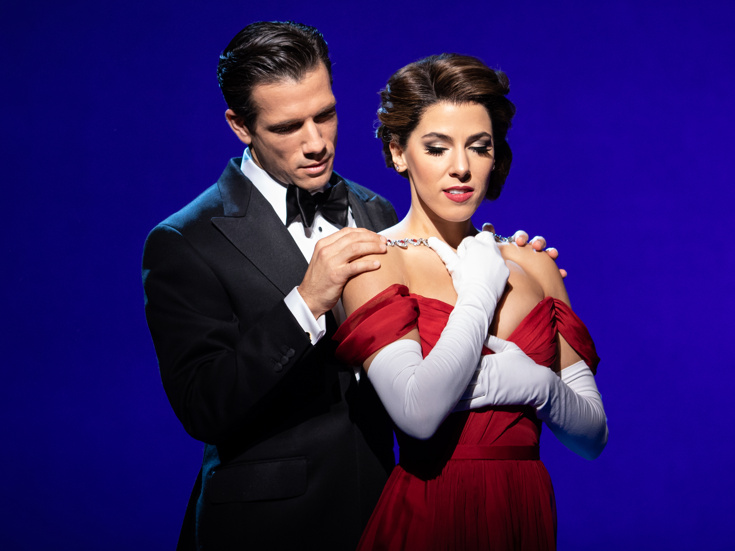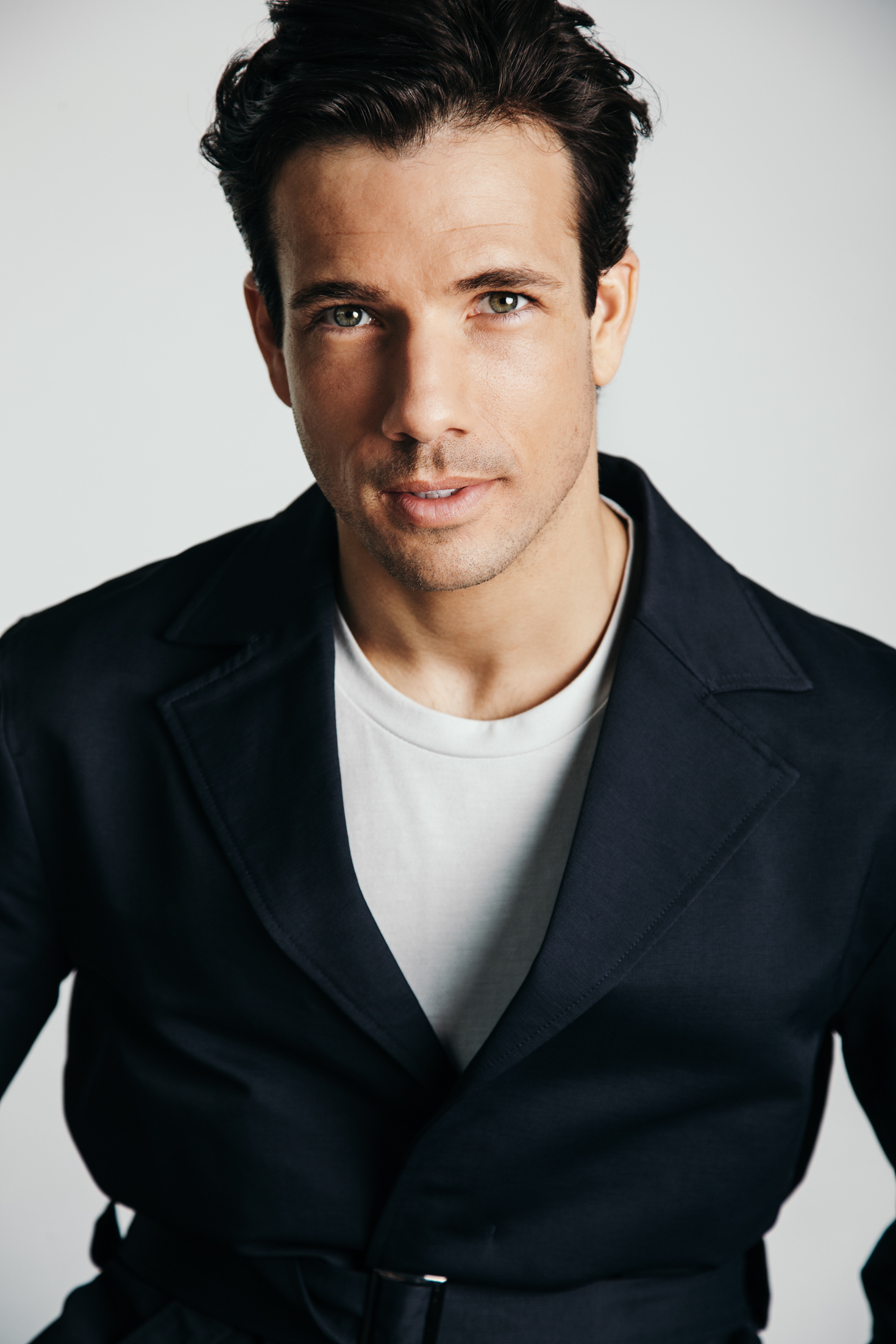'This Is a Love Story': Why Danny Mac Doesn't Think Pretty Woman in the West End Glamorizes Prostitution

(Photo: Helen Maybanks)
Danny Mac dazzled followers on Strictly Come Dancing with his fancy footwork on the ever-popular BBC program, but the English performer has since made a separate name for himself in stage musicals. He toured the UK as Joe Gillis in Sunset Boulevard and as Bob Wallace in White Christmas, transferring into the West End with the latter title. Mac also played Gabey in the 2017 Open Air Theatre Regent’s Park revival of On the Town. He is currently in previews at London's Piccadilly Theatre as the sartorially splendid Edward—originally played by Richard Gere on screen—in Pretty Woman: The Musical, opening on March 2.
What made you sign on for this particular role, not least coming so soon after White Christmas, which finished its West End run at the start of this year?
The clincher was the opportunity to work with [director-choreographer] Jerry Mitchell, which I’ve wanted to do for a long time. And then getting Aimie [Atkinson, who was Katherine Howard in the musical Six] on board to play Vivian, that was another massive thing because the show has to be about her. I felt ready too, to spend a whole year in town on a show: this felt like something where I could take on the challenge and do it right.
Did you see Andy Karl in the Broadway premiere?
I wish I’d had the time; I’d love to have had the opportunity. But that has allowed us to hit this afresh as a new piece, really. Obviously we’re here to respect the choices about the material that have been made already while still having the freedom to run with things as well.
How well did you know the Garry Marshall-directed film from 1990, given that you were two years old when it was released?
It’s one of those films has landed for everyone in our VHS or DVD players, or now our streamers. And it comes to us because it’s so well-loved. You have incredible actors in Julia Roberts and Richard Gere and had they not played those roles, it could have maybe gone straight to TV, but it didn’t because of the quality of the artists involved.
What has it been like having the co-writer of the film, J.F. Lawton, in the room as co-book author [with Marshall, who died in 2016] of the musical?
I sat down with J.F. for an hour or two and talked about everything that Edward was before the movie and during the movie and once the movie was made. And what was given to me as an option was to play with the Edward in this show and who he is and the darkness within him. We hear things about his parents—that he lost his mum at a young age and had a strange relationship with his father—all of which for Edward is a big part of his self-discovery and who he wants to be. He’s at that point in his 30s when he’s beginning to question his life and legacy and who he is.
Is that where the Bryan Adams and Jim Vallance score comes in?
Richard in the film gives an incredible performance as Edward but it’s always through things he doesn’t say: Why have you hired this girl? Do you love her? Are you attracted to her? But in the musical we hear quite a bit more because we get to hear Edward sing about his feelings. You lose the enigma of Edward in some ways but you also see deeper into him.
How do you respond to those who argue that the story sanitizes prostitution?
That’s a point people make and you can’t brush it aside; everyone is entitled to their opinion. But to me it isn’t a show about prostitution. The minute it starts, Vivian says she doesn’t want this anymore and so the musical becomes a love story about loving yourself first and finding out who you want to be. Her circumstances are her circumstances but it's not something that we try and glamorize.
Is the issue therefore about how the material is allowed to land?
I think so, and that’s for other people to decide. I see it as a story about a woman who is an incredibly strong character who, I believe, is even stronger here than in the movie. This is a love story and a loved story.

Do you enjoy the attention paid in the material to surfaces—how people look, what they wear?
I will admit that when I go to events, I like to get dressed up: I have a tailor who I’ve used a lot so I’ve got a lot of really well-tailored clothes. And another great thing about doing this is that they hired my tailor to make all Edward’s stuff for the show. But, you know, I’ve probably spent about six months of my life in Los Angeles [where the show is set] and I know that it can turn on a dime—from where you’re having the best time of your life and the next minute it can be hideous.
Is this an interesting contrast to Sunset Boulevard—two shows that take diametrically opposed views of LA life?
When I was in LA, I certainly experienced the bitterness of the place, which was perfect for Joe Gillis [in Sunset], and the sheer beauty and openness and craziness of LA, which was great for this. Sunset Boulevard shows you the darkness of the industry among what people believe to be the grandeur, and Pretty Woman is about the optimism and the extravagance and the personalities that go with that.
Is part of you looking longingly at the imminent return to the London stage of City of Angels, a show seemingly made to order for you which would complete an LA-themed trifecta?
I’m hoping within the next decade I can still be in that, before I get too old!
Have you noticed how much of your musical theater work is American?
Yeah, which is lovely: I’ve got the American market in England sewn up! [laughs] I’ve found with time that the further I can get away from myself the better and that it’s necessary for me sometimes to escape from myself. What I like is stepping sideways and changing my accent in order to be this guy—it’s as if I have to find the character in a completely different place and then bring him back to me.
Have you thought about Moulin Rouge as a logical next step, since it is following Pretty Woman into the Piccadilly next year?
Oh God, can you imagine? It’s too far ahead for me to think about just yet and there are going to be a lot of people up for those roles. But who knows? That would be nice, wouldn’t it? I could stay on in my dressing room and just kick back!